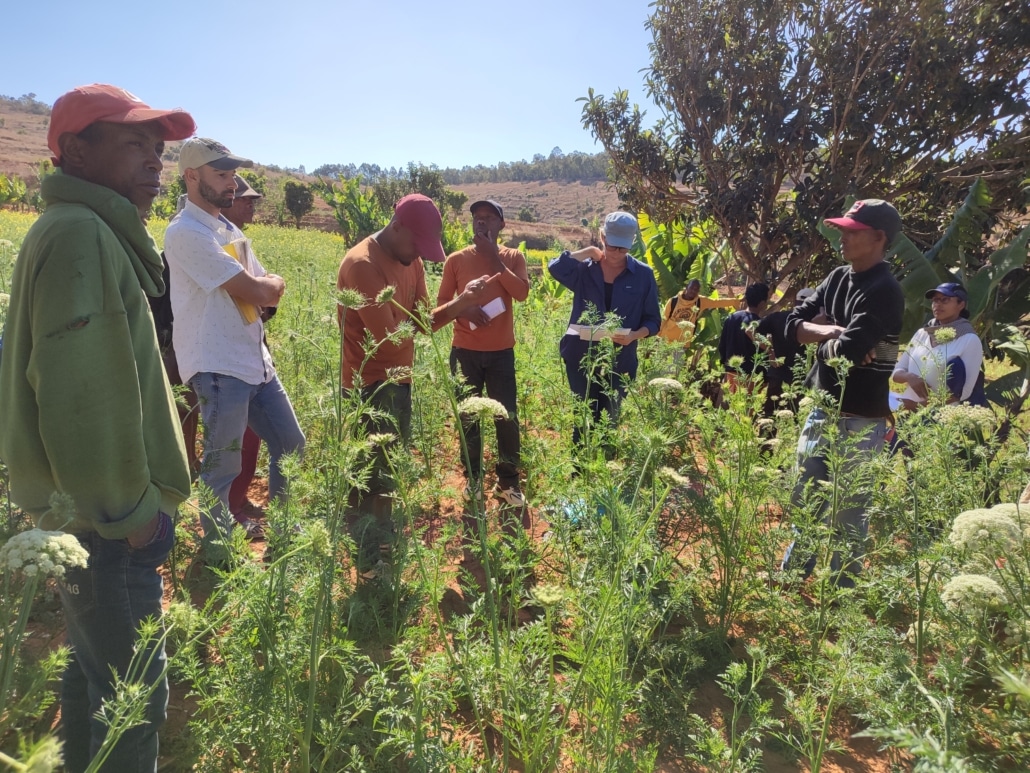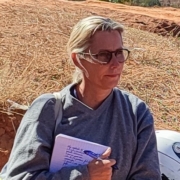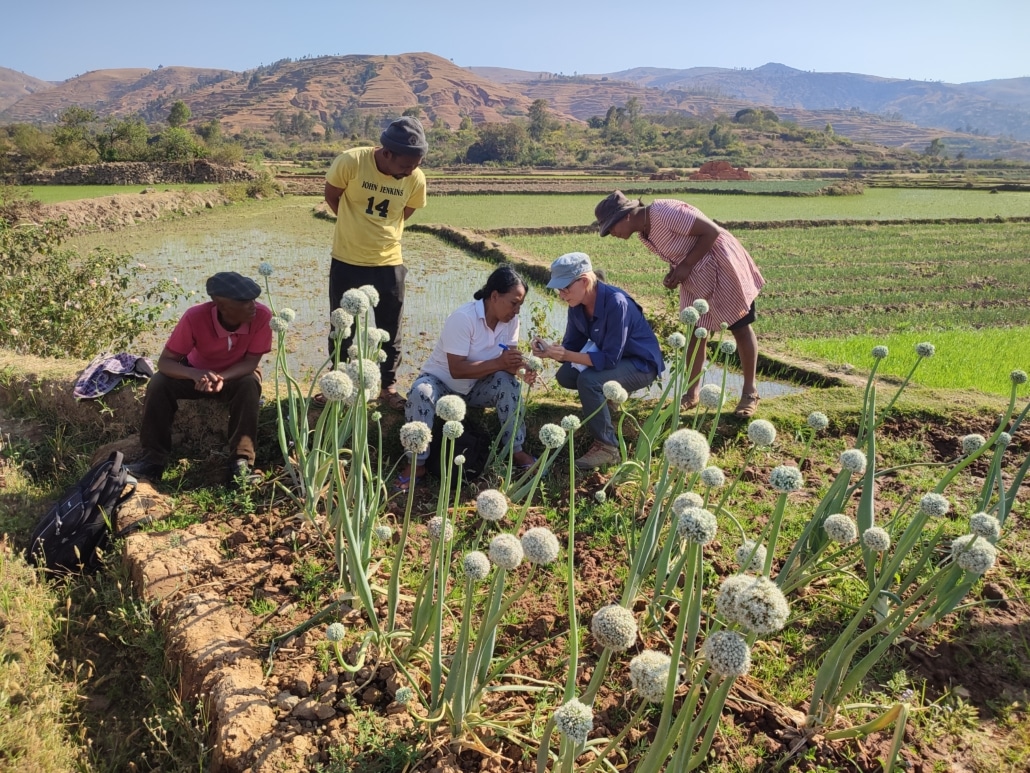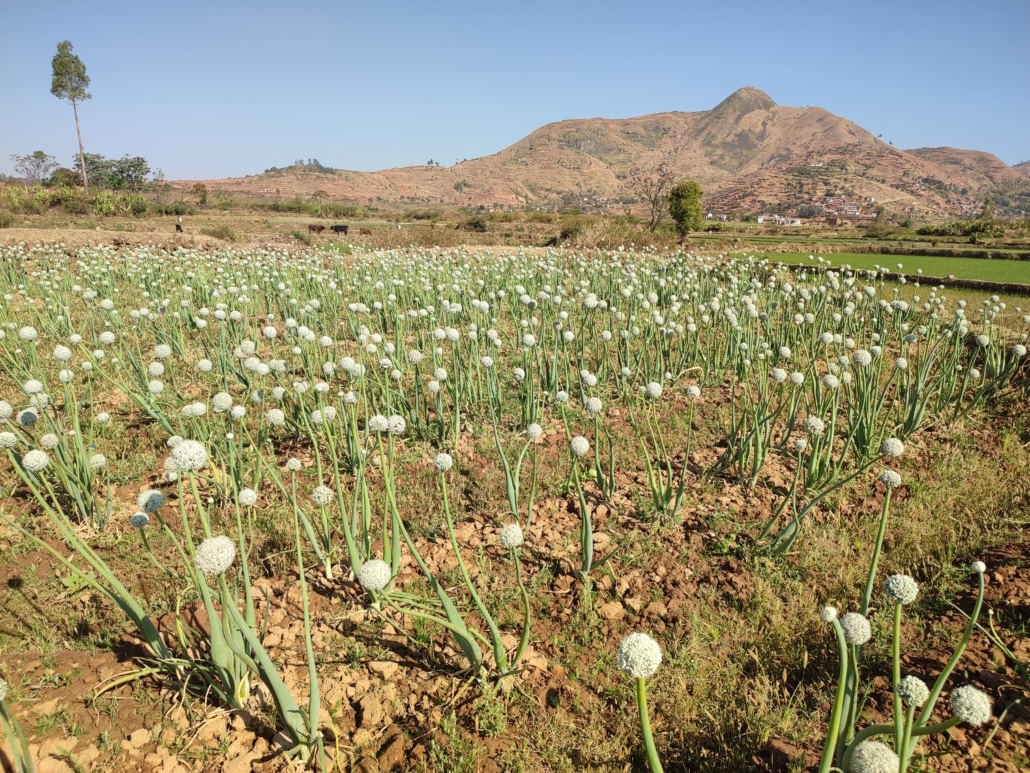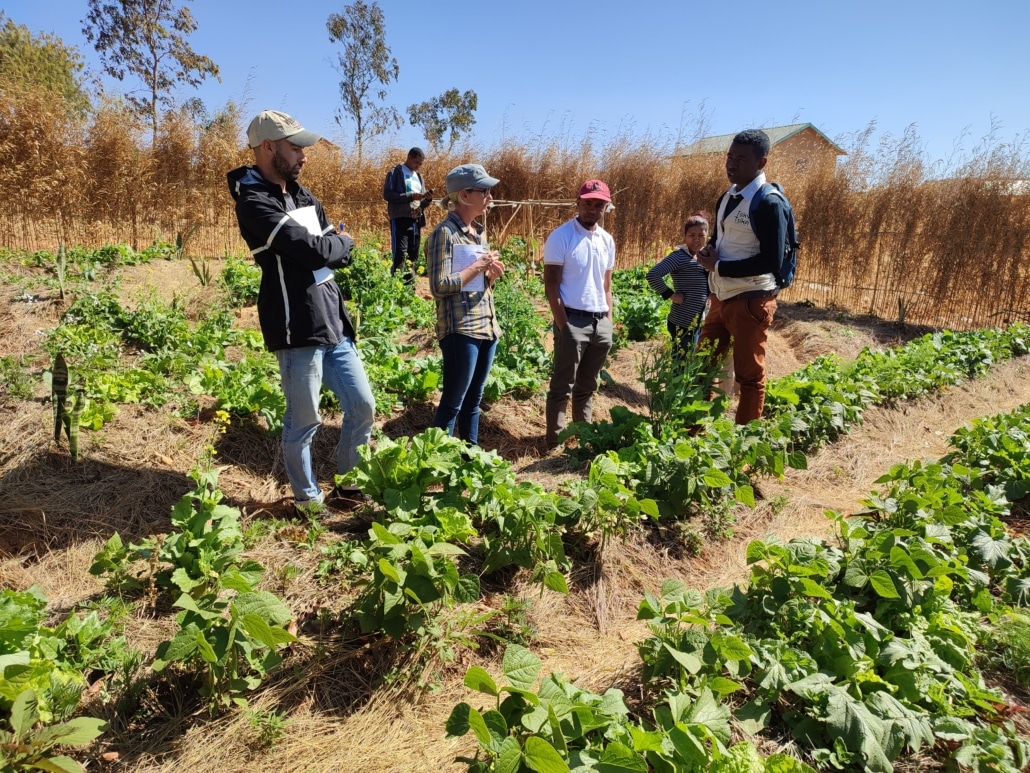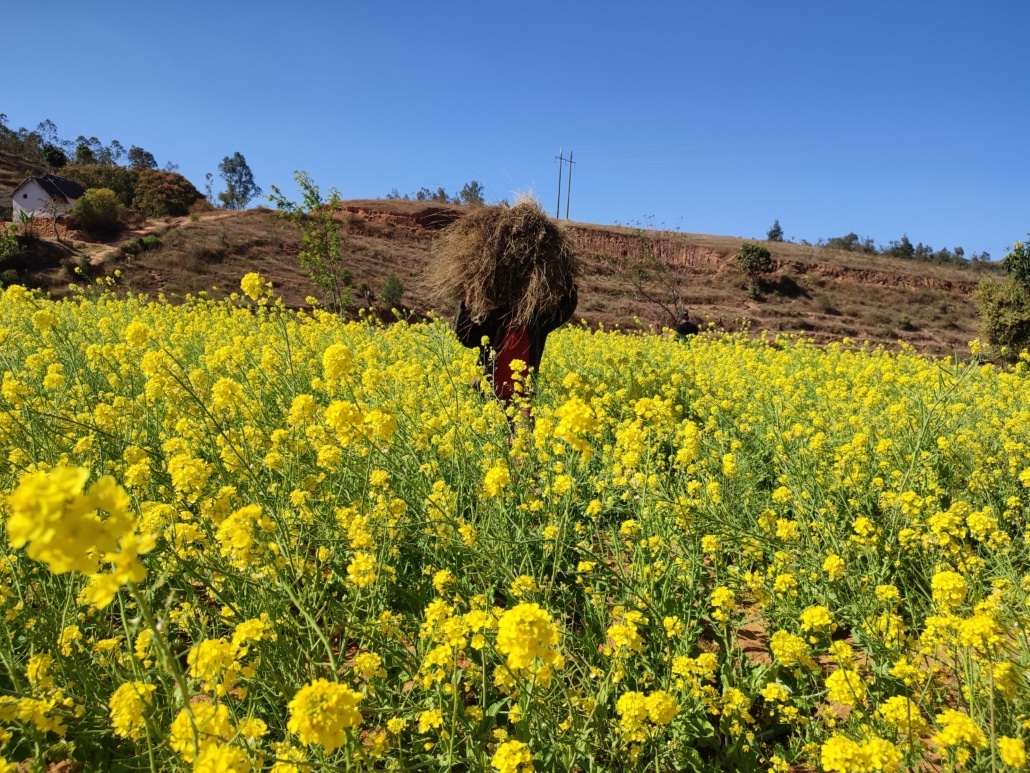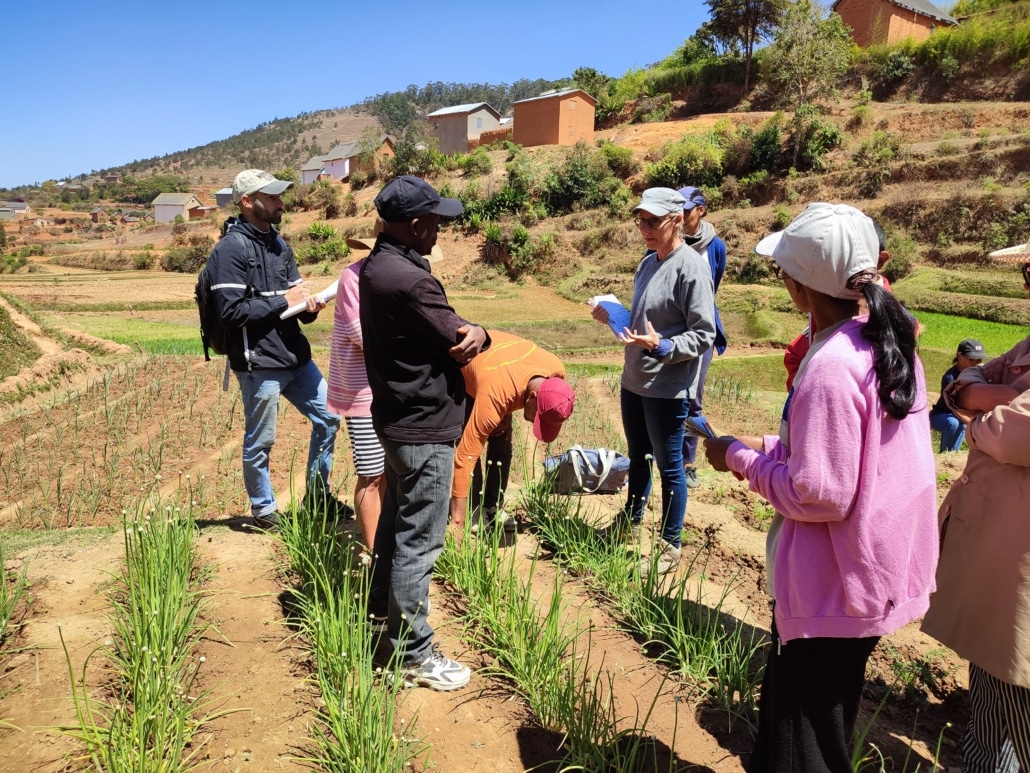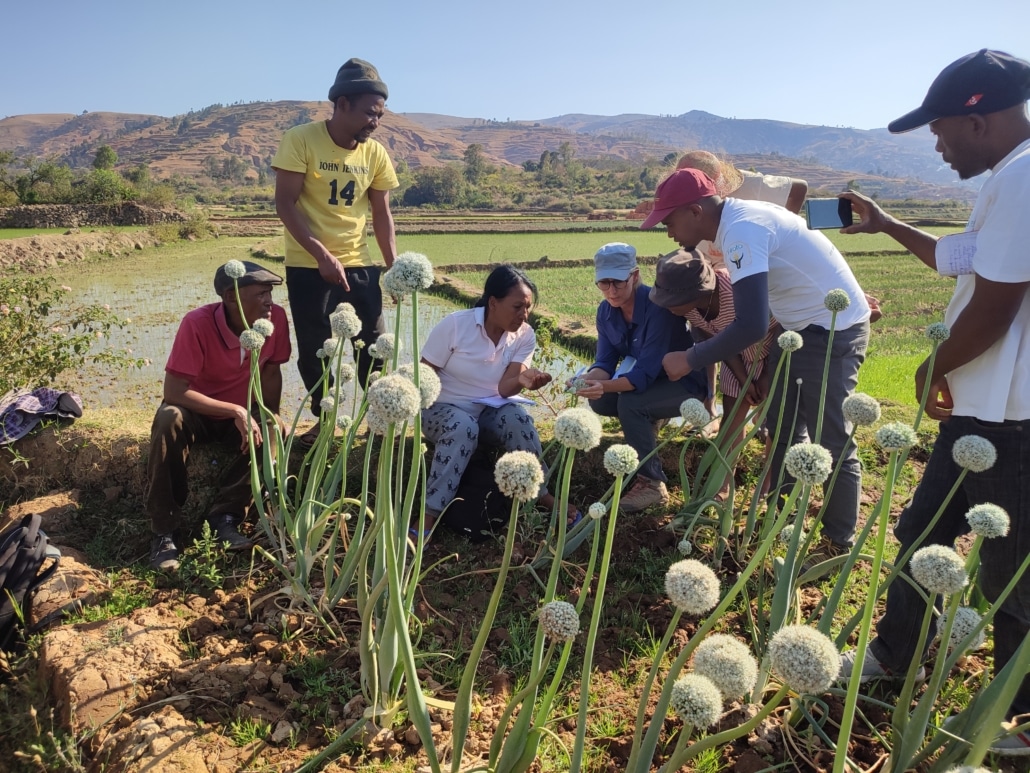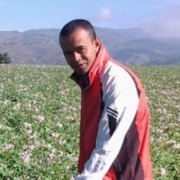
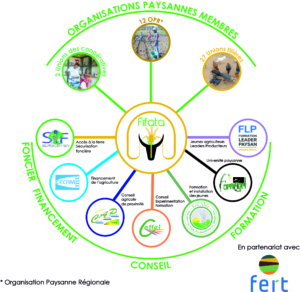

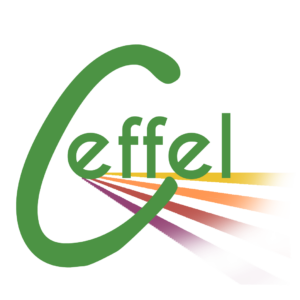
Fifata, a Malagasy professional agricultural organization, is committed to developing a local vegetable seed chain.
With the support of Fert, Cirad‘s external expertise was mobilised. Sylvie VANCOPPENOLLE, a senior seed technician at Cirad supported the Fifata Group and more specifically the specialised FO Ceffel, with distance learning courses in 2021 and 2022 and a mission to Madagascar from 27 September to 3 October 2022.
Ceffel has initiated a vegetable seed multiplication service for its experimentation and training centre located in Andranobe – Antsirabe commune – and for Fifata’s member FOs. The main objective of this support is to strengthen the knowledge of Ceffel’s technicians on the production of vegetable seeds.
“My aim was to support the Ceffel technical team so that they could master the seed multiplication activity and pass on their knowledge to the other actors in the production process. They will then be able to set up training courses for the producers.”
From the beginning of 2021, the first video-conference exchanges enabled Sylvie VANCOPPENOLLE to get to know the context, to have a global vision of the organisation of the Fifata group and to define the training needs of the Ceffel technical team. Six distance learning modules were produced.
“From the very first exchanges, I immediately noticed that Ceffel and the producers already had good experience in the field. Some cultivation techniques are well known, they are not novices. They have been producing seeds for years. My role was to supplement their knowledge, particularly on aspects of botanical classification, floral biology and the various reproduction mechanisms. We also worked a lot on maintaining the genetic integrity of varieties and preserving the intra-varietal diversity that is really specific to farmers’ seeds. Preserving this diversity allows population varieties to co-evolve with their environment and adapt to climatic conditions. This contributes to the resilience of agricultural production. It is important to develop this with them.”
The field mission enabled Sylvie VANCOPPENOLLE to learn about the context and issues concerning the sector as well as the group’s progress on market garden seed production.
“When I visited the producers, I was impressed by their ability to produce seeds of such good quality despite the difficulties of irrigation and the fact that all interventions are manual. When I compare them with France, I realise that in the future we will have a lot to learn from them, especially about their water management in the face of the drought they have been experiencing for years. Another remarkable point is their mastery of agroecological practices that Ceffel has developed and that the producers are implementing. This has a very positive impact on the health of the plots. This mission made me aware of the importance of this seed production activity, which brings an additional income to the producers. One of them told us that it represents about 30% of the household income. This is not negligible. It is also important to emphasise the effectiveness of Ceffel in meeting the needs of producers. Its experimentation centre develops interesting techniques and makes them available to producers. What I liked most about the Fifata group’s system is the fact that they put producers at the heart of the action, and you can really feel it when you are in the field. All the actions are thought out and carried out to provide concrete solutions for producers.”
These interesting, constructive and efficient exchanges made it possible to carry out this expert mission.
“I think that the support provided by Cirad has enabled the Ceffel team to strengthen their knowledge, to take into account the botanical and genetic aspects of seed multiplication, to improve their practices and to adapt their training modules in order to pass on all this new knowledge to the producers.”
The Ceffel team stays in contact with Sylvie VANCOPPENOLLE and passes on the knowledge received in the form of training workshops with the producers.
“The exchanges and training with Sylvie were very beneficial not only for the technicians but also for the producers who are members of the Fifata group. The practical and technical exchanges in the field allowed us to acquire knowledge in a concrete way and to clarify all the dark points and unanswered questions. We were able to update and improve the contents of our training modules and technical sheets. Producers now have more comprehensive information and training on seed technology. We are also thinking about a good structuring and organisation of production schemes at the level of the Fifata group.”

